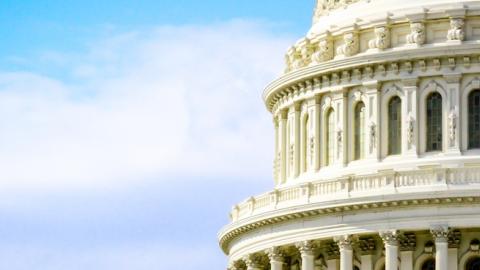The American Founders designed a federal government of separated powers: They authorized Congress to pass the laws, the president to execute them, and the Supreme Court (and "such inferior Courts as the Congress may from time to time ordain and establish") to apply them in judicial proceedings. But the lawmaking power is now, illegitimately, being shared. We currently have a president who feels free to grant unilateral executive amnesty to millions of illegal immigrants in plain defiance of federal immigration law, to decree myriad changes to Obamacare at his whim, even to rename mountains and to decide who is pictured on our currency. Meanwhile, our republican citizenry has grown so accustomed to viewing the presidency as being at the center of our political universe that most Americans think nothing of referring to Washington's Birthday—the real name of the holiday—by a name that George Washington himself, that great opponent of "governments of a monarchical cast," would surely have abhorred ("President's Day").
It is a welcome bit of good news, therefore, that several of the finest members of Congress, including Senator Mike Lee, House Financial Services chairman Jeb Hensarling, and Congressman Dave Brat, have just launched a new effort to try to reassert Congress's constitutional role in our lawmaking process. As Lee put it at Wednesday's formal launch of the "Article I Project," Congress hasn't been a helpless victim of the executive branch's power-grabs; it has been a/the primary enabler of them. In Lee's words, Congress has failed "to do its job," as too many of its members prefer the notion of "surrendering…constitutional powers to the executive branch," rather than casting tough voters and therefore accepting accountability.
This is a long way from James Madison's famous expectation that our separation of powers would be maintained because ambition would counteract ambition, yet it rings true. It now appears that the primary ambition of most members of Congress is simply to be members of Congress. And this seems to be as true for senators as for representatives.
The Article I Project (A1P) has four main goals: 1. to reassert Congress's power of the purse; 2. to avoid legislative "cliffs" (which undermine Congress's power of the purse); 3. to rein in executive regulators (such as those at the EPA); and 4. to try to get federal courts to stop granting executive agencies such broad discretion that, in the words of the A1P write-up, these "agencies can do almost anything they want, without congressional approval, so long as they have a clever enough justification."
Lee also emphasized the importance of moving to an "open, unlimited amendment process" in the Senate, which he called crucial. Such a process would be the polar opposite of having an up-or-down vote on one must-pass bill that's cobbled together by a small group of people behind closed doors.
Given how many members of Congress have no desire for such reform, Rep. Brat argued that the momentum for such changes will have to come from an outraged citizenry. He hinted that he feels some optimism in this vein, stemming from voters' support for outsider, non-business-as-usual presidential candidates.
Others have also been helping to lead this crucial charge to get Congress to reassert its constitutional powers, chief among them Senator Ben Sasse and my Hudson Institute colleague, Christopher DeMuth. In tandem with their efforts, and those of others, the launch of the Article I Project is an encouraging development.
After the Preamble, the first line of the Constitution is Article I, Section 1: "All legislative Powers herein granted shall be vested in a Congress of the United States, which shall consist of a Senate and House of Representatives." If America is to restore its founding principles, one of the most important aspects of that quest will be to revive respect for, and insist upon adherence to, this opening line.




















